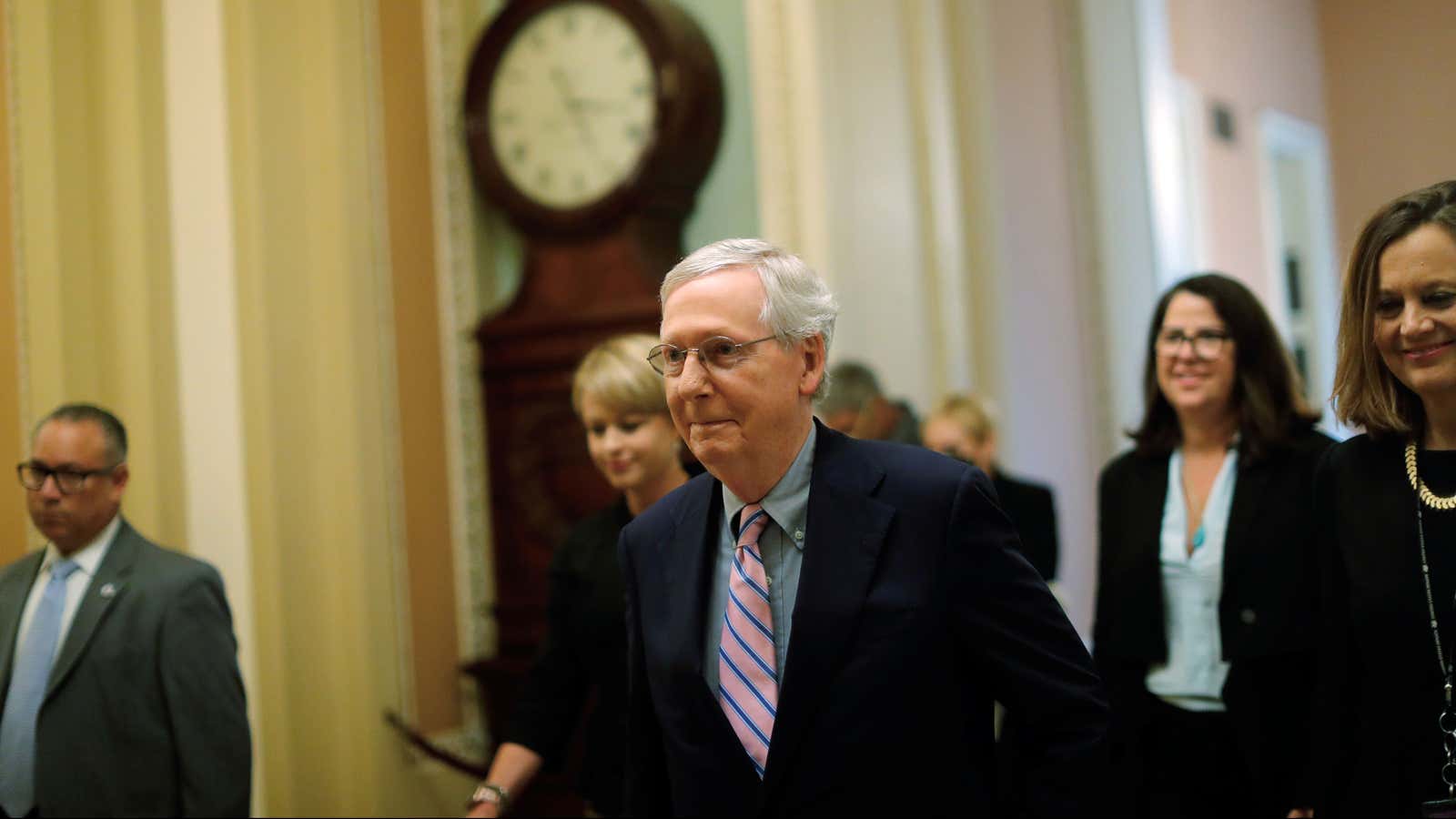The US Senate confirmed Brett Kavanaugh’s nomination to the Supreme Court nomination today (Oct. 6), in a 50-48 vote, solidifying a conservative majority on the nation’s highest court. Ahead of the vote, Senate majority leader Mitch McConnell told the Washington Post (paywall) the outcry against Kavanaugh had helped the Republican party.
“It’s been a great political gift for us. The tactics have energized our base,” McConnell said. “I want to thank the mob, because they’ve done the one thing we were having trouble doing, which was energizing our base.” In remarks on the Senate floor before the vote commenced, McConnell said voting for Kavanaugh would end “this brief, dark chapter” in history.
The bitter, polarized fight to confirm Kavanaugh has appeared to push House races toward Democrats, while improving odds that Republicans maintain control of the Senate, the Post reported (paywall). Suburban women are expected to determine the outcome of House races, and that group has largely been sympathetic to Christine Blasey Ford, the woman who testified that Kavanaugh sexually assaulted her when the two of them were teenagers.
Trump has fanned the partisan flames, defending Kavanaugh, mocking his accusers, and casting doubt on the millions of women and survivors of sexual violence who protested Kavanaugh’s nomination.
Democrats risk losing Senate seats in Indiana, Missouri, and Montana, and failing to pick up seats once seen as competitive. Senator Heidi Heitkamp, a Democrat from North Dakota who voted against Kavanaugh, fell behind her Republican opponent in recent polling. Heitkamp’s campaign raised nearly $4 million in the third quarter, and reportedly raised over $400,000 in 24 hours after senator Kamala Harris sent a fundraising email praising her “no” vote on Kavanaugh.
Republicans appear weaker in the House—68 races are viewed as competitive by the Cook Political Report—and in gubernatorial contests. Democrats need to pick up 23 seats in the House to assume the majority. They would need two seats in the Senate to do the same there.
As battlegrounds shift, the Republican party has pulled spending from several districts where its House candidates appear unlikely to win, including that of Keith Rothfus, who faces a strong challenge from Democrat Conor Lamb in a left-leaning district of Pennsylvania. Democratic candidates also lead in five key House races in California, according to recent polling from the University of California-Berkeley’s Institute for Governmental Studies.
